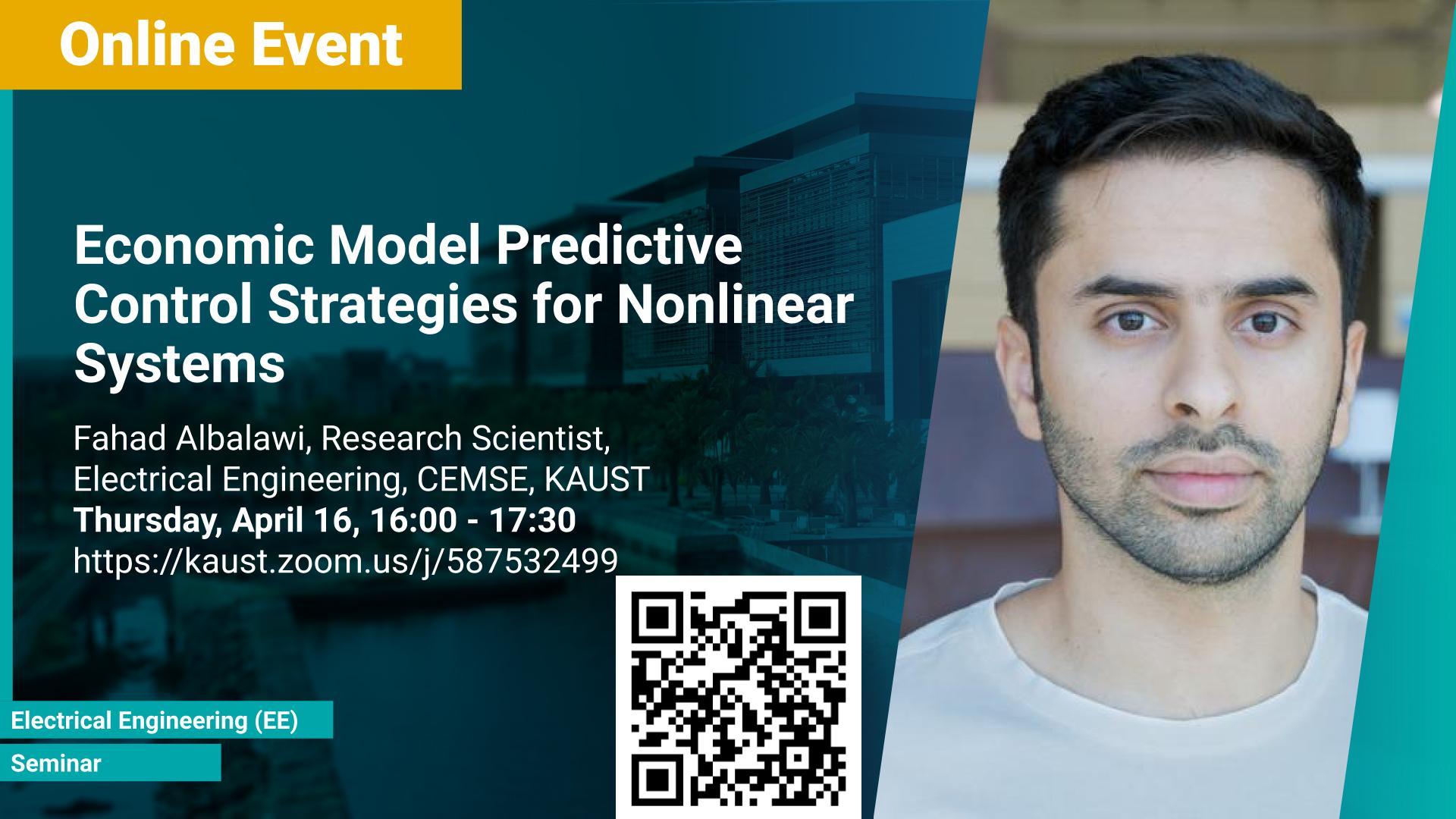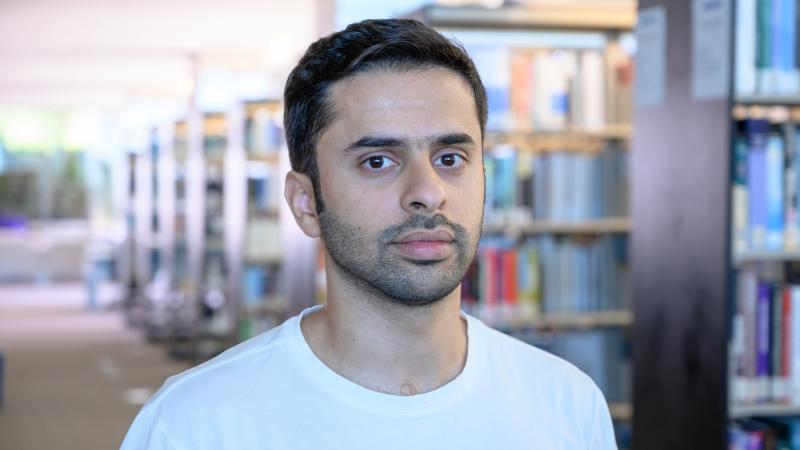Abstract
Optimization-based control technologies such as Economic Model Predictive Control (EMPC) are widely used in the process industries and beyond. Therefore, control theorists and practitioners are interested in developing EMPC formulations that can enhance safety, cyber-security, and economic profitability for several applications (e.g., energy systems, chemical applications, and autonomous driving). Motivated by these considerations, the first part of this talk provides a brief introduction of the EMPC (motivation, challenges, and solutions). The second part of this talk proposes a regret-based robust EMPC paradigm for nonlinear systems subject to unknown but bounded disturbance. The main motivation of the proposed work is the possible improvement of the economic performance when one considers the regret function as the objective function for the robust EMPC algorithm instead of the worst cost. The third part of this talk introduces an integrated framework that combines a Neural Network (NN) algorithm with an MPC scheme that can guarantee closed-loop stability in the presence of deception cyberattacks (e.g., min-max cyberattack). Both discrete-time and continuous-time nonlinear systems will be utilized throughout the talk to demonstrate the applicability and effectiveness of the proposed control methods. Finally, future research directions will be presented at the end of the talk.
Brief Biography
Fahad Albalawi received his B.S. (2008) in Electrical Engineering from Umm Alqura University, Makkah. After that, he joined Saudi Aramco as an Electrical Engineer for one year. Then, he decided to complete his higher education where he received his M.S. (2013) degree from George Washington University, Washington DC. In June 2017, Fahad obtained his Ph.D. degree in Electrical Engineering from University of California, Los Angeles. Right after his Ph.D. graduation, Fahad obtained an assistant professor position in Electrical Engineering at Taif University, Saudi Arabia. Currently, he is a Research Scientist at King Abdullah University of Science and Technology (KAUST). His research interests include model predictive control, nonlinear systems, dynamic process optimization, process operational safety, and machine learning.

